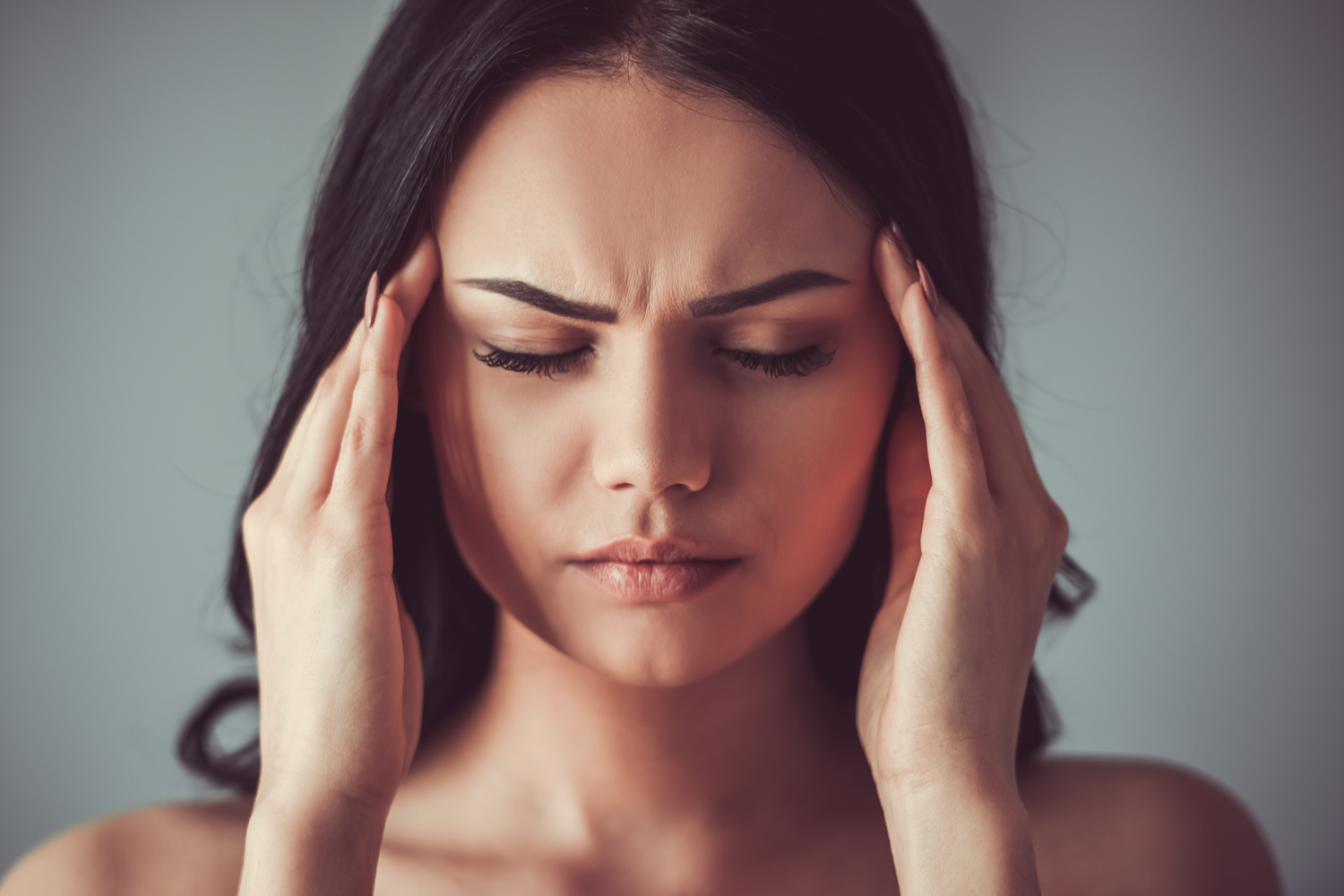
Headaches are an extremely common problem, and most people will experience them with some regularity during their lifetime. If you are prone to headaches, there could be several reasons why. One cause of headaches that is often overlooked is issues with the temporomandibular joint, or TMJ.
What is the temporomandibular joint?
We each have two temporomandibular joints. These are located on either side of the head, where the jaw meets the skull. If you place your fingers just in front of your ears and open and close your mouth, you should be able to feel the top of the joints moving. Their purpose is to facilitate the movement of the mouth and jaw, both up and down as well as forwards and backwards. This combination of movements enables us to speak, eat, yawn, laugh and more. Ideally, the motion of this joint should be smooth. However, some people suffer from issues that affect the way that the joint works, resulting in a range of painful and sometimes debilitating symptoms. This is what is known as temporomandibular joint disorder, TMJ or sometimes TMD.
How do problems with the temporomandibular joint cause headaches?
Swelling and inflammation is commonplace in patients with issues with their temporomandibular joint. This may begin solely in the joint but can spread to other muscle and ligament tissues within the jaw. The more inflamed the area, the tighter the muscles become. It is this tension, combined with jaw spasms, that can result in headaches. These headaches can be felt not only in the head, but also in the sides of the face, top of the head and neck. Some patients also experience stiffness and discomfort in their shoulders.
Another way in which temporomandibular joint issues can cause headaches is through teeth clenching and grinding. These are both symptoms of TMJ disorder, although they are often subconscious or unconscious acts, triggered by stress or other underlying triggers. When you persistently clench or grind your teeth, damage to them is unavoidable, but so too is tension in the muscles and the joint itself, that results in ear pain and headaches.
Symptoms of a TMJ headache
Every patient is unique and so exactly how your TMJ headache manifests many may vary, but common signs and symptoms include:
Jaw pain
Pain in the lower half of the face
Pain in the area in front of the ears or temples
Tight facial or jaw muscles
A clicking or popping noise in the jaw
Stiffness/difficulty moving your jaw
Lockjaw
Changes in the way that your teeth fit together when you close your mouth
Treating TMJ headaches
If you are suffering from TMJ headaches, there’s a number of treatments that could help to alleviate your discomfort, as well as the disorder in general. Many patients end up working through a series of different treatments to find the one that works best for you. These could include:
At-home treatment:
Changing your diet to avoid chewy, sticky, or hard foods that can affect your jaw.
Reducing stress levels to help prevent clenching and grinding of your teeth.
Using hot/cold compresses to reduce pain and inflammation in the jaw.
Forgoing chewing gum or other objects.
Jaw exercises.
Mouth guards or splints.
Medications:
Anti-inflammatory medications or other pain relief.
Muscle relaxants.
Some anti-depressant medications have been proven to be effective in reducing the symptoms of TMJ disorder.
In severe cases, patients may be referred for orthodontic treatment or surgery to improve their bite or deal with other issues affecting the TMJ.
For more information about TMJ, or to schedule an appointment, please call Concierge Smile Boutique at (424) 404-6400 to speak to our dedicated team.








